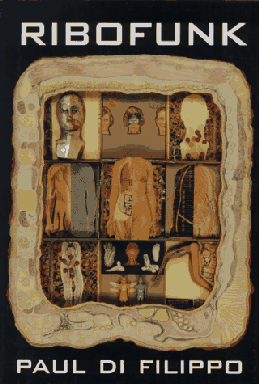Biopunk
Biopunk is a subgenre of science fiction that focuses on the implications of biotechnology and genetic engineering. It is a derivative of the cyberpunk genre, but instead of focusing on information technology and cyberspace, biopunk explores the darker aspects of biological manipulation and the ethical, social, and political issues that arise from it.
Characteristics[edit | edit source]
Biopunk narratives often feature a dystopian world where corporations or governments have significant control over genetic information and biological research. The genre typically includes themes such as genetic modification, cloning, bioterrorism, and the creation of transgenic organisms. Characters in biopunk stories may include biohackers, rogue scientists, and individuals who have been genetically altered.
Origins and Development[edit | edit source]
Biopunk emerged in the late 20th century as a response to advancements in genetic engineering and the Human Genome Project. It draws inspiration from earlier works of science fiction that explored biological themes, such as Aldous Huxley's Brave New World and Philip K. Dick's Do Androids Dream of Electric Sheep?. The genre gained popularity in the 1990s and 2000s with the rise of biotechnology and the increasing public awareness of genetic manipulation.
Notable Works[edit | edit source]
Some notable works in the biopunk genre include:
- Oryx and Crake by Margaret Atwood
- The Windup Girl by Paolo Bacigalupi
- Altered Carbon by Richard K. Morgan
- The Island of Doctor Moreau by H.G. Wells
Themes[edit | edit source]
Biopunk explores several key themes:
- **Ethics of Genetic Engineering**: The moral implications of altering the human genome and creating new life forms.
- **Corporate Control**: The power and influence of biotechnology companies over society and individuals.
- **Identity and Humanity**: Questions about what it means to be human in a world where genetic modification is possible.
- **Resistance and Rebellion**: The struggle against oppressive systems that control genetic information and technology.
Influence[edit | edit source]
Biopunk has influenced various forms of media, including literature, film, television, and video games. It has also contributed to discussions about the future of biotechnology and its potential impact on society.
Related Pages[edit | edit source]
Categories[edit | edit source]
Search WikiMD
Ad.Tired of being Overweight? Try W8MD's physician weight loss program.
Semaglutide (Ozempic / Wegovy and Tirzepatide (Mounjaro / Zepbound) available.
Advertise on WikiMD
|
WikiMD's Wellness Encyclopedia |
| Let Food Be Thy Medicine Medicine Thy Food - Hippocrates |
Translate this page: - East Asian
中文,
日本,
한국어,
South Asian
हिन्दी,
தமிழ்,
తెలుగు,
Urdu,
ಕನ್ನಡ,
Southeast Asian
Indonesian,
Vietnamese,
Thai,
မြန်မာဘာသာ,
বাংলা
European
español,
Deutsch,
français,
Greek,
português do Brasil,
polski,
română,
русский,
Nederlands,
norsk,
svenska,
suomi,
Italian
Middle Eastern & African
عربى,
Turkish,
Persian,
Hebrew,
Afrikaans,
isiZulu,
Kiswahili,
Other
Bulgarian,
Hungarian,
Czech,
Swedish,
മലയാളം,
मराठी,
ਪੰਜਾਬੀ,
ગુજરાતી,
Portuguese,
Ukrainian
Medical Disclaimer: WikiMD is not a substitute for professional medical advice. The information on WikiMD is provided as an information resource only, may be incorrect, outdated or misleading, and is not to be used or relied on for any diagnostic or treatment purposes. Please consult your health care provider before making any healthcare decisions or for guidance about a specific medical condition. WikiMD expressly disclaims responsibility, and shall have no liability, for any damages, loss, injury, or liability whatsoever suffered as a result of your reliance on the information contained in this site. By visiting this site you agree to the foregoing terms and conditions, which may from time to time be changed or supplemented by WikiMD. If you do not agree to the foregoing terms and conditions, you should not enter or use this site. See full disclaimer.
Credits:Most images are courtesy of Wikimedia commons, and templates, categories Wikipedia, licensed under CC BY SA or similar.
Contributors: Prab R. Tumpati, MD

